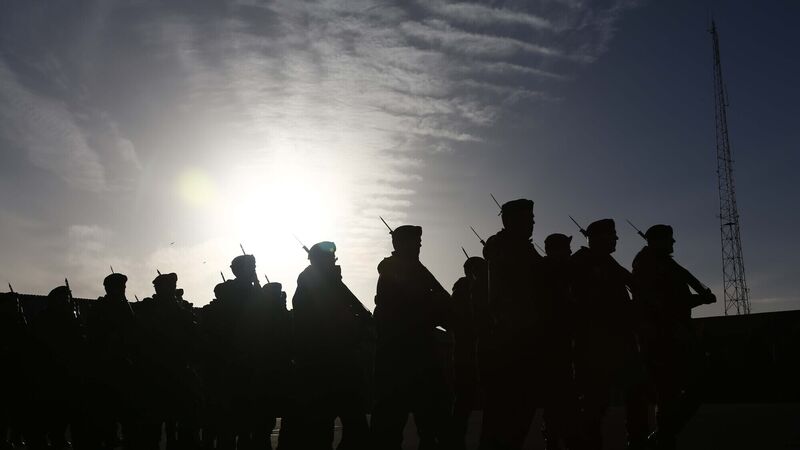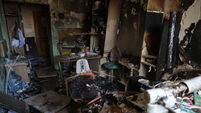Dorcha Lee: Defence Forces still languishing in the last chance saloon

The permanent Defence Forces has fallen an extra 400 and is now below 8,000 personnel. Picture: Colin Keegan/Collins
Life can be very cruel for frogs. Place them in a pot of hot water and they will, I am told, leap free and scarper off. Place them in a pot of cold water and heat slowly, there will be no reaction, until they are well and truly cooked. This is an apt analogy for where the Defence Forces are right now. Everyone knows that the Defence Forces are in decline and their capabilities withering away steadily. But the decline was so subtle it never became the top political issue it should have been, until the damage was done.
Writing in the Irish Examiner in June 2021, I pointed out that the Defence Forces was in the last chance saloon. The army had lost the means to function in a modern conflict zone, other than in very limited peace support operations. The air corps had no jet interceptor capability to protect our skies, and the naval service had not got a single warship capable of naval combat. The reserve was down, from 15,000 personnel in 1980 to around 1,700 men and women, leaving the country with no capacity to expand in time of emergency. I also pointed out that the then rate of decline in defence spending was 0.035% per annum, leaving zero funding for defence by 2028.
Already a subscriber? Sign in
You have reached your article limit.
Subscribe to access all of the Irish Examiner.
Annual €130 €80
Best value
Monthly €12€6 / month
Introductory offers for new customers. Annual billed once for first year. Renews at €130. Monthly initial discount (first 3 months) billed monthly, then €12 a month. Ts&Cs apply.
CONNECT WITH US TODAY
Be the first to know the latest news and updates
















